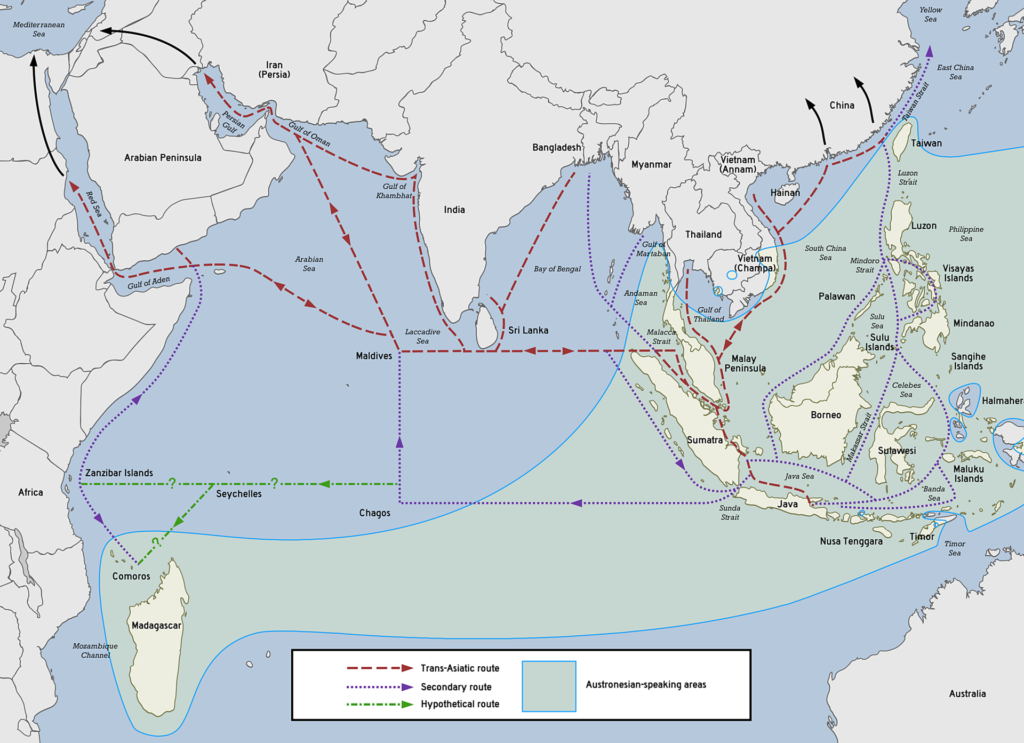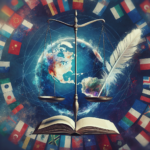Geopolitics is a term that often comes up in discussions about international relations and global strategy. But what does it actually mean, and why should you care? Let’s dive deeper into the world of geopolitics to understand its significance and how it impacts our daily lives.
Understanding Geopolitics
The Basics
Geopolitics is the study of how geographical factors influence political decisions and power relationships on a global scale. It involves analyzing how physical elements like location, natural resources, and terrain shape the strategies and actions of countries. This field helps us understand why certain regions are more strategically important than others and how countries navigate these complexities to achieve their objectives.

Historically, geopolitics has been pivotal in shaping the outcomes of wars, the rise and fall of empires, and the formation of international alliances. For instance, the strategic importance of the Middle East, with its vast oil reserves, has long influenced global politics and conflicts. The Suez Canal, a crucial maritime route, has also been a focal point in geopolitical strategies due to its significance in global trade.
Key Concepts
Several key concepts are fundamental to understanding geopolitics:
- Power: The ability of a nation to influence others and achieve its goals. Power can be military, economic, or diplomatic.
- Strategy: The plans and policies designed to achieve national objectives. This includes military strategies, economic policies, and diplomatic efforts.
- Geography: The physical characteristics of a region, such as its location, climate, and natural resources, which can influence political decisions.
These elements combine to form the basis of geopolitical analysis, helping us understand the motivations and actions of countries on the global stage.
Major Geopolitical Theories
Classical Geopolitics
Classical geopolitics focuses on the strategic importance of physical locations. One of the most well-known classical theories is Halford Mackinder’s Heartland Theory, which suggests that control over Eastern Europe and Central Asia (the “Heartland”) could lead to global dominance. According to this theory, the Heartland’s vast landmass and resources make it the key to controlling the world.
Another influential theory is Alfred Mahan’s concept of sea power, which emphasizes the importance of naval dominance. Mahan argued that control of the seas through a powerful navy could ensure a nation’s global influence and economic prosperity.


Modern Geopolitics
Modern geopolitics is the natural extension of classical geopolitics in the modern age, extending beyond physical geography to also include economic, technological, and cultural factors. It recognizes that in today’s interconnected, globalized world, economic influence and technological advancements can be just as crucial as military might. We can all recognize the rise of cyber warfare and the strategic importance of information technology, highlighting how modern geopolitics encompasses much more than just physical territories.
Geopolitical Actors
Nation-States
Countries remain the primary actors in geopolitics. They engage in diplomacy, form alliances, and sometimes resort to conflict to protect their interests. The policies and actions of powerful nations like the United States, China, and Russia significantly impact global stability and security, to a significantly greater degree than smaller global players. For instance, the ongoing rivalry between the US and China influences trade policies, technological advancements, and military strategies worldwide and has significant effects on other smaller actors in the Indo-Pacific region.
International Organizations
International organizations such as the United Nations (UN), North Atlantic Treaty Organization (NATO), and the European Union (EU) play crucial roles in maintaining international order and addressing global issues. These organizations provide platforms for cooperation, conflict resolution, and the promotion of international norms and standards. For example, NATO’s collective defense policy ensures that an attack on one member is considered an attack on all, with the goal of deterring potential aggressors.
Non-State Actors
Non-state actors, including multinational corporations, non-governmental organizations (NGOs), and even terrorist groups, also influence geopolitical landscapes, and increasingly so in the modern world. Multinational corporations like Google and Amazon wield substantial economic power, affecting global markets and policies. NGOs, such as Amnesty International, play vital roles in advocating for human rights and influencing international policies. Meanwhile, terrorist groups like ISIS and the Houthis impact geopolitical stability by engaging in asymmetric warfare and disrupting regional security.
How Geopolitics Impacts Everyday Life
Economic Stability
Geopolitical events can have direct and significant impacts on the global economy. For instance, conflicts in oil-rich regions can lead to fluctuations in oil prices, affecting everything from transportation costs to heating bills. Trade policies and sanctions can influence the availability and price of goods, impacting consumers and businesses alike. The US-China trade war, for example, led to increased tariffs and disrupted global supply chains, affecting prices and availability of products worldwide.
Security and Conflict
Geopolitics plays a critical role in national and global security. Understanding geopolitical dynamics helps countries anticipate potential threats and develop effective defense strategies, even as everyday citizens. For instance, tensions in the South China Sea, a crucial maritime route, affect global shipping and regional stability, in the same way that Houthi aggression in Yemen affects trade in the Red Sea. Countries in the region, along with global powers like the US, monitor and respond to these tensions to protect their strategic interests.

Policy and Regulation
Government policies on issues such as immigration, trade, and environmental regulation are often influenced by geopolitical considerations. These policies can impact job markets, consumer prices, and even personal freedoms. For example, immigration policies shaped by geopolitical factors can affect labor markets and demographic trends, while trade policies influenced by geopolitical alliances can determine the flow of goods and services across borders.
The Role of Geopolitics in Preparedness
At Preparedness & Policy, we emphasize the importance of not just being ready for geopolitical risks, but anticipating them. Understanding geopolitics helps intellectual and observant American individuals and communities anticipate and prepare for potential disruptions to their daily lives while evaluating their realistic probabilities of occurring.

Here are some practical strategies:
Anticipating Risks & Staying Informed
Staying informed about global events and trends is crucial for preparedness. Reliable sources like the Council on Foreign Relations and Foreign Policy provide valuable insights into current geopolitical issues. These resources offer in-depth analysis and expert perspectives on global affairs, helping you stay ahead of potential risks. You should also stay up to date with us, with our Daily Briefs about Policy and Preparedness, and critical news that is directly relevant to you.
Case Studies
Analyzing past geopolitical events can offer valuable lessons. For example, the 1973 oil crisis highlighted the vulnerability of economies to geopolitical tensions, prompting many countries to seek alternative energy sources and improve energy efficiency. Understanding these historical events helps us develop better strategies to mitigate similar risks in the future.
Geopolitical Trends and Predictions
Current Global Power Dynamics
Today, we see a multipolar world where several major powers, including the US, China, and the EU, influence global affairs. Understanding these dynamics helps us anticipate shifts in power and potential conflicts. For example, the growing influence of China in Africa through infrastructure investments and economic partnerships is reshaping regional dynamics and challenging traditional Western dominance.
Emerging Geopolitical Challenges

New challenges are emerging that reshape traditional geopolitical strategies and alliances. Issues like climate change, cyber warfare, and the rise of artificial intelligence present complex challenges. Climate change, for instance, is leading to resource scarcity and displacement of populations, which can greatly exacerbate geopolitical tensions. Cyber warfare poses threats to national security, with state and non-state actors engaging in cyber attacks to disrupt critical infrastructure and steal sensitive information.
These threats have the potential to affect everyday citizens, not just soldiers on a foreign battlefield.
Future Scenarios
While predicting the future is always challenging, staying informed about trends can help us prepare. The increasing importance of the Arctic region, for instance, due to melting ice caps and new shipping routes could lead to geopolitical competition in the coming decades. Countries like Russia, Canada, and the US are already positioning themselves to exploit new resources and trade routes in the Arctic, already leading to new geopolitical tensions.
Conclusion
Geopolitics matters because it shapes and molds the world we live in. From economic stability to national security, understanding geopolitical dynamics is crucial for being prepared and making informed decisions. At Preparedness & Policy, we are committed to helping you navigate these complexities, ensuring you are always informed and ready for whatever comes next.
For more in-depth analysis and resources on geopolitics, check out the Council on Foreign Relations and Foreign Policy. These sources provide comprehensive coverage and expert insights into global affairs, helping you stay informed of any geopolitical challenges that may arise.
Further Reading
Preparedness & Policy – Policy Page

